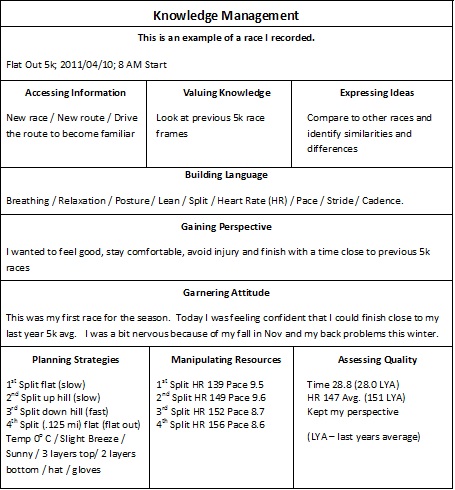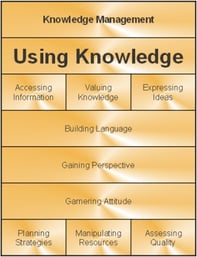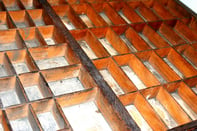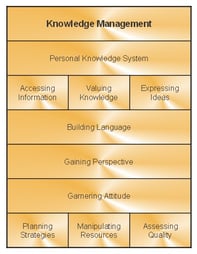Published on
Building Knowledge Through Knowledge Management
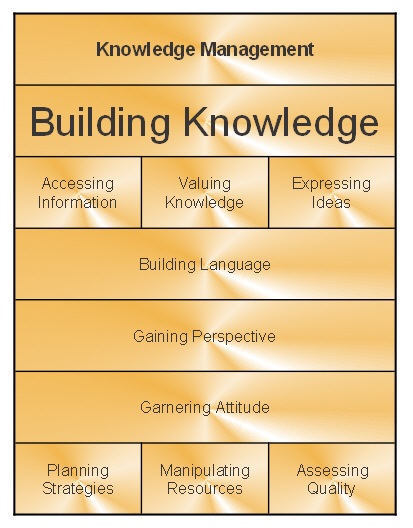
In my last article I talked about the importance of being able to see learning as project-based. The forth step in taking charge of our own learning is the most important. To become self-directed learners we need to understand how to log what we are learning. As a student myself, I have always created a portfolio of my activities for every formal course I have ever done in high school and university. Portfolios are great for documenting incremental success and building confidence.
We build our personal knowledge systems through incremental successes in the various projects we undertake on a daily basis to provide services or produce products for ourselves or others. Then we fill in the gaps with abstract knowledge. Are we successful because we are smart; or are we smart because we are successful? I believe the latter is true.
When we are initially building knowledge or learning, it is very important to understand that knowledge is not absolute. Every time we repeat a project our knowledge is new and improved until we become competent in providing the service or making the product. As well, we can build new knowledge by creating different versions of the product or service. How many ways can a chef cook a steak?
As we build knowledge, we use it; as we use knowledge, we build it. When we have success, we build confidence; when we have confidence we build success. It is a cycle. That cycle becomes the basis for organizing what we know and our successes become the motivation for continuing to build knowledge. The areas of knowledge that we build becomes our personal knowledge systems.
There is no other way to provide an example for building knowledge than to get a little personal. I am a runner. I started running seriously about ten years ago after I retired. My personal knowledge system has incorporated hundreds of runs over the past ten years. Running is very much a science. I believe that it is the ultimate knowledge building experience because it incorporates almost every aspect of the body energy system. And no matter how long you run, there is always something new to learn.
Here is a sample run which shows how to use an incremental project to build confidence and success.
The knowledge management frame at this level is probably the most meaningful because it reflects the incremental way we continue to learn, gain confidence and succeed on a daily basis. In our lifetimes we could fill out this form many thousands of times.
The form reflects the incremental way we conduct our projects. Our projects can be focused in depth on specific services or products. For example we might restore an antique car. Our projects can be broad-based or diverse. For example, we can work toward a college degree. It is our projects that make us who we are.
Doing projects successfully is about managing knowledge. In my next article, I will look at how we can use the self-directed learning approach of building knowledge, using knowledge, organizing knowledge, and building our personal knowledge systems as the basis of teaching and learning in particular and human resource development in general.
Author Perspective: Business

